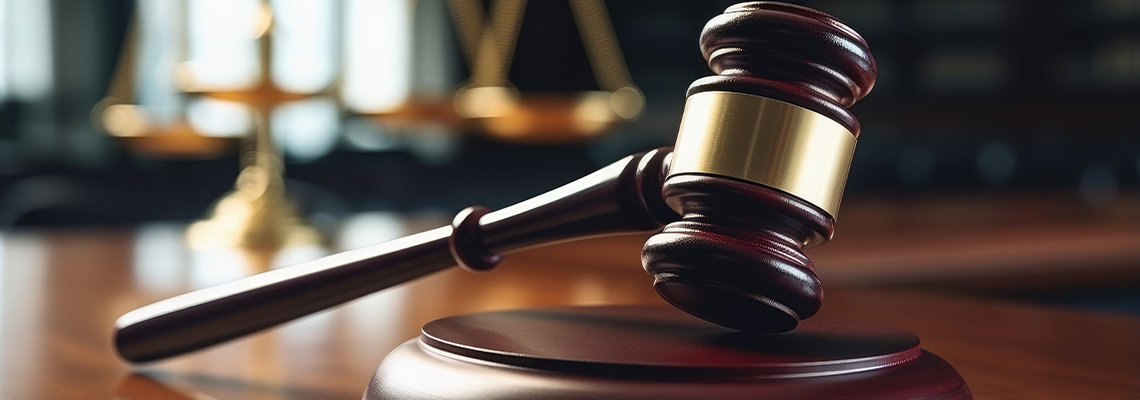
Criminal Defense FAQs
Criminal defense focuses on defending individuals and organizations that have been charged with criminal offenses. This can include minor infractions, such as traffic violations, or more serious felonies like murder and white-collar crimes.
At Jay Lauer Attorney at Law, I strive to help my clients protect their rights and receive a fair trial. Below, I've outlined answers to some of the most common frequently asked questions I receive regarding criminal defense.
Q: Do I need a criminal defense attorney if I'm charged with a crime?
A: If you've been charged with a crime, it is important to seek the advice of a criminal defense attorney immediately. A criminal charge can have serious consequences, including fines, jail time, and even a criminal record.
An experienced attorney can help you understand the charges against you and develop a strong defense strategy.
Q: What should I do if I'm arrested in Indiana?
A: If you've been arrested, it is important to remain calm and cooperate with law enforcement. You have the right to remain silent and you should exercise this right until you have an attorney present.
Contacting a criminal defense attorney as soon as possible is crucial in protecting your rights and building a solid defense.
Q: Can I represent myself in court?
A: While self-representation is legally possible, it is highly discouraged. Legal procedures can be complicated and criminal charges can have potentially serious consequences.
An experienced attorney will have a working knowledge of the criminal justice system and can advise you on your options and help you mount a solid defense.
Q: What should I do if the police want to question me about a crime?
A: If the police want to question you, it's important to exercise your right to remain silent until you contact an attorney. You are not obligated to answer any questions without legal representation, and anything you do say can be used against you in court.
It's always best to have an attorney present during any interrogation to help protect your rights.
Q: Can I get my criminal record expunged in Indiana?
A: Yes, it's possible to get your criminal record expunged in Indiana. Expungement is the legal process of sealing or erasing a criminal record, which can make it easier for you to find employment, apply for housing, and more.
In Indiana, several offenses are eligible for expungement, such as misdemeanors, certain felonies, and juvenile offenses. However, the eligibility criteria and waiting periods vary depending on the offense.
My firm can help you determine whether you qualify for expungement and assist you with the filing process.
Q: Can a criminal case be dismissed before trial in Indiana?
Yes, a criminal case can be dismissed before trial in Indiana if there is insufficient evidence, procedural errors, or violations of your constitutional rights.
As your attorney, I can help you discover whether any of these apply to your case and help you file the necessary motions for the dismissal of your case.
Q: What happens during an arraignment in Indiana?
A: An arraignment is your first official court appearance in a criminal case. During this hearing, the charges against you are read, and you're asked to enter a plea of guilty, not guilty, or no contest. The judge may also discuss bail and set future court dates.
As your attorney, I will be present at your arraignment, and I will strive to help you understand the proceedings and protect your rights.
Q: What should I do if I'm stopped for a DUI in Indiana?
A: If you're stopped for a DUI in Indiana, you have the right to remain silent and should only provide your identification.
While you can legally refuse to partake in field sobriety tests, refusing to complete a breathalyzer test may result in additional legal consequences due to the state's implied consent laws. If you've been stopped or charged with a DUI, reach out to an experienced attorney.
Q: What is bail, and how can I post it in Indiana?
A: Bail is the amount of money you are required to pay to be released from jail until your trial. When you post bail, it acts as a guarantee that you will appear at all future court dates in exchange for a release from custody.
To post bail in Indiana, you can either pay the full amount in cash or use a bail bondsman to cover the cost for a non-refundable fee. In some instances, property may be used as collateral.
If you are unable to afford bail, your attorney can help you argue for a lower bail amount or explore alternative forms of release.
Q: What happens if I violate my probation in Indiana?
A: Violating your probation in Indiana can result in serious consequences. If you violate the terms of your probation, such as failing to report to your probation officer or committing another crime, you could face additional charges and potentially have your probation revoked.
As your attorney, I can help defend you against any alleged violations and help you better understand your rights and obligations during probation.
Seek Experienced Legal Counsel
Being charged with a crime often causes no shortage of stress and emotional turmoil, which can impact your ability to make rational and informed decisions.
At Jay Lauer Attorney at Law, I am dedicated to helping you develop a strong legal defense by giving you the support and tools you need to understand the criminal justice system.
If you or a loved one has been charged with a crime, reach out to my firm today. Located in South Bend, Indiana, I serve clients throughout Granger, Mishawaka, and Northern Indiana.
